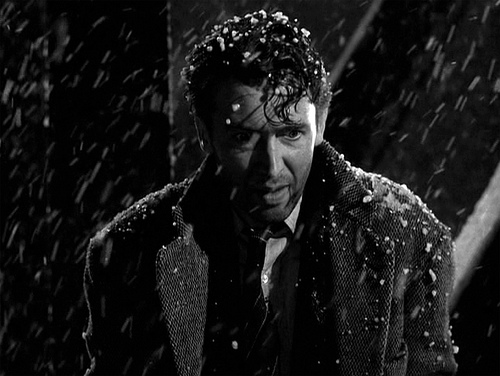If I had a pet reindeer, or any kind of creature that resembled a fawn or Bambi-style animal, I’d name it Dickens. Come on. How adorable would it be to have a little pet deer named Dickens? Here Dickens! Come have a sugar cube! That’s a good little Dickens. What’s your favorite story? What’s that you say, “A Christmas Carol?” Well, I don’t feel like reading to you, because you’re a little deer, so let’s watch a movie or a TV special instead. Whatyda say?
And then, as a gift to Dickens, I would have to compile a list of movie and TV adaptations of Charles Dickens’s awesome book—A Christmas Carol—and I’d want those adaptations to be somehow a little bit different from their source material, because deers like stuff that’s new.
What are the best non-traditional versions of A Christmas Carol? These.
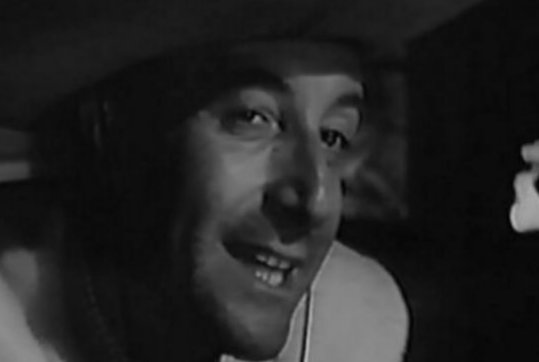
Rod Serling’s “A Carol for Another Christmas”
Not actually available commercially (you have to see this one in a museum!) Rod Serling made a kind of cautionary tale designed to get people jazzed about supporting the United Nations. Whereas the original Scrooge sees what could happen in his own world if avarice and greed become his only legacy, Serling’s “A Carol for Another Christmas,” is more concerned with the bigger stuff of nuclear proliferation and world peace! With ghosts and Peter Sellers, there’s no reason we can’t hope this one won’t pop on as a special feature with some Twilight Zone stuff in the near future.
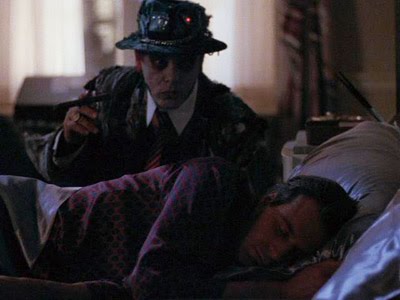
Quantum Leap “A Little Miracle”
When Sam leaps into a 1962 kind of Bob Cratchit character, he has to figure out how to prevent a money-grubbing character named Michael Blake to stop being such an asshole and NOT have the nearby Salvation Army building torn down. What’s fun about this spin on the Dickensian ethical haunting, is that it actually takes quite a bit to convince Blake that the spirits are real. Because Sam and Al are faking everything with some of their future technology, Blake is onto the tricks, creating a different kind of tension in the story than just redeeming a lost, terrible person. After all, Sam is supposed to set right what once was wrong, making Scrooge-like-redemption kind of what he does every week. The solution to making a grown-man believe in ghosts? Holograms from the future!
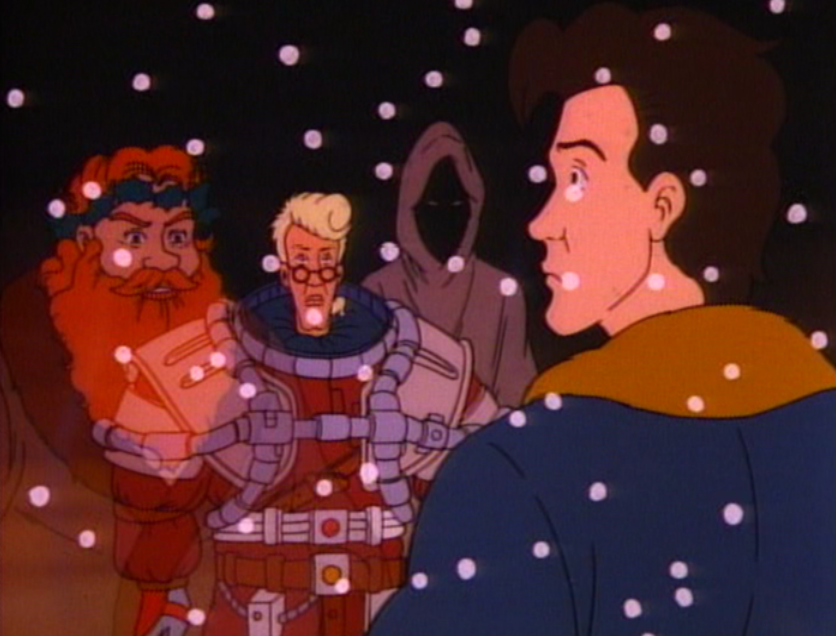
The Real Ghostbusters “X-Mas Marks the Spot”
Though not a thoroughly watchable piece of entertainment, this J. Michael Stracyznki episode from The Real Ghostbusters is notable for its total originality. When the Ghostbusters accidentally time travel to 1837, they proceed to unleash their proton energy and ghost entrapping apparatus on the Three Spirits of Christmas. When the boys travel back to the present, they find the future totally changed, populated with misers and penny-pinchers galore. Egon quickly deduces that the Ghostbusters busting the Three Spirits has changed history since Scrooge now never wrote his famous book “A Christmas Humbug.” That’s right, in the fictional universe of The Real Ghostbusters, Scrooge was a real person AND an author.
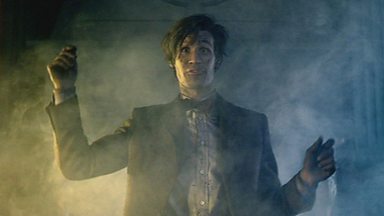
Doctor Who “A Christmas Carol”
Matt Smith’s first Christmas Special for Doctor Who saw him not just trying to jump the shark, but straight-up riding a flying one! Perhaps Steven Moffat’s most wibbly-wobbly paradox-filled episode ever, the time-travel antics of this episode can cause a headache for the Who viewer with even the bravest of hearts. On a faraway planet, an angry old man who looks exactly like Michael Gambon won’t open an energy shield and thus might cause Amy and Rory (and a bunch of other folks) to die. No problem! The Doctor can act as all three spirits at once and quickly get the cranky old Kazran to suddenly become a better person. What’s so notable about the temporal puddle-jumping here is that it’s the natural progression of Dickens’ original time-meddling spirits. Not only do the ghosts of the original text get to haunt with a purpose and be forces of good, they also can seemingly travel in time and space! The Doctor is no spirit or goblin, but he might be the most literary television science fiction character, making his stepping into the role of all three spirits here totally appropriate and still one of Who’s finest Christmas moments ever.
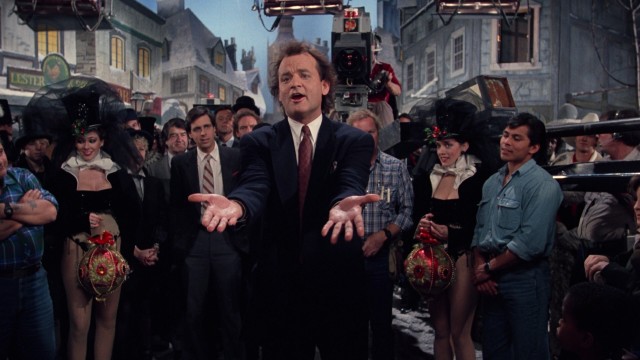
Scrooged
This is a film seemingly made in a lab of the magic many of us feel for the 1980s, and because it was made in the 80s, any of its flaws and missteps seem perfect. Truly though, if any of us were tasked with heading back to the 80s and being told to create a contemporary version of A Christmas Carol, and our memories were wiped of having actually seen Scrooged, we’d still make this exact movie, every one of us. If Bill Murray wasn’t available for such an enterprise, what would be the point? (Having ghost experts is really essential to making it through a Dickens-pastiche, people!) and if you for some reason didn’t want to use big-eyed-girl-next-door-I-can’t-believe-he’s-going-to-let-her-get-away-again charmer Karen Allen, then who are you going to use? And would we all, in our states of total amnesia insist that Carol Kane throw toasters at Bill Murray’s head? Yes, yes, I believe we would.
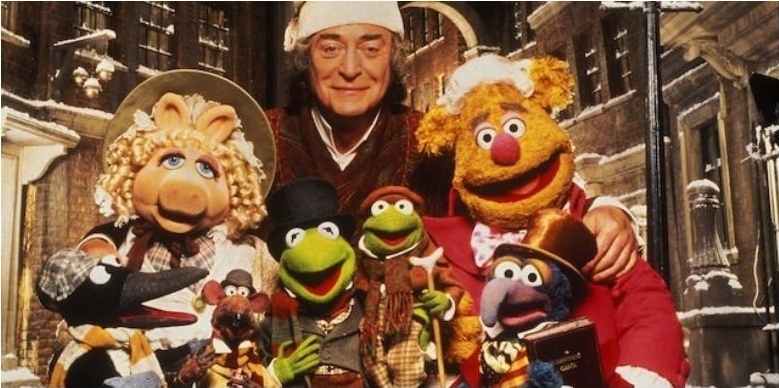
Muppets Christmas Carol
Yes, yes. I’m listing one of the Muppets finer moments under a “non-traditional” Dickens adaptation, simply because they are felt creatures who interact with fleshy humans with seemingly no explanation. Would Dickens himself have approved of all the singing, or his own recasting as a space alien? (Gonzo is an alien. Muppets in Space. Never forget.) I hope so! Somewhat shockingly, the changes made to the actual text of the book are fewer than in some straight Dickens adaptations, making one wonder if Muppets Christmas Carol is perhaps better than any other version of A Christmas Carol, ever. Let’s pretend your Scrooge-y heart hates the Muppets (are there no puppet prisons?) and also hates singing. You know what you still love? Michael Caine. People think that if you’ve got puppets and silly songs in a movie, that movie will be bad, stupid and annoying. But, if Michael Caine plays one of your leads, everything will be perfectly fine. A lot of people don’t know that.
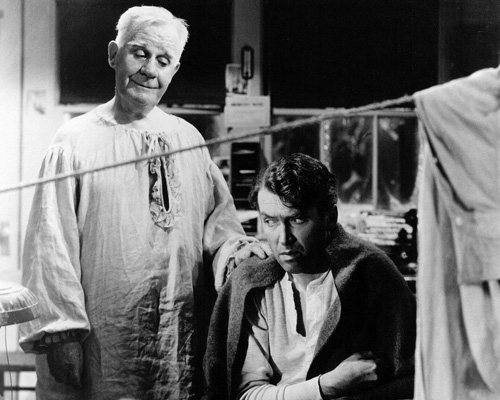
It’s A Wonderful Life
Is this a Dickens pastiche? At all? Well, it’s got a spirit of sort in the form of the angel Clarence, and there’s an alternate universe presented to George Bailey on Christmas Eve, which results in him sitting in a graveyard, pounding his fists into the snow, looking at a headstone sporting his own last name. Yes, the headstone is for his brother and not him, and the alternate universe Clarence presents George is designed to remind him how important his life is, rather than how terrible he’s been to people. It’s A Wonderful Life, then, is a kind of inverted A Christmas Carol, as it uses the sort of proto sci-fi haunting, finger-wagging of a superior being as a way of saving an essentially good person, rather than redeeming a bad one. In the form of Potter, It’s A Wonderful Life has its clear Scrooge analog, which here is asserted to be an unchanging, terrible character. (I often dream of a sideways sequel to It’s A Wonderful Life in which one of Clarence’s contemporaries had to earn his/her wings by fixing Potter’s life!)
But instead of making this “carol” about Scrooge, Jimmy Stewart’s George Bailey is the best, most dimensional Bob Cratchit the world has ever seen. This is the story of a real Bob Cratchit, not one just used as a plot device to get Scrooge to mend his ways. Instead, the power of choices and how choices define all of us, is turned, with Dickens flavor, onto a good man who could go bad, rather than a bad man who could turn good. If Scrooge is the Darth Vader of Christmas stories, then George Bailey is easily a yuletide Luke Skywalker.
This article was originally published December 20, 2013.
Ryan Britt is a longtime contributor to Tor.com and is hard at work on the script for his steampunk-action flick Tiny Tim, in which the titular character fights against injustice and utters his famous catch phrase “suck my Dickens” whenever he blows something up. Ryan is only kind of kidding about this.










